Assays
The BD MAX™ MRSA XT and StaphSR assays allow for detection of patients at risk for nasal colonisation with Staphylococcus aureus or MRSA
The burden of Surgical Site Infections (SSIs)
- SSIs are the most common healthcare-associated infections (HAIs) in Europe – the rate of SSIs varies from 0.5% to 10.1%1
- S. aureus can cause community-acquired and healthcare-acquired infections ranging from skin and soft tissue infections to sepsis and death
- Patients with an SSI have a 2 to 11 times higher rate of mortality as compared to surgical patients without an SSI2
- Asymptomatic nasal carriers of S. aureus have a risk of HAI three to six times higher than among non-carriers3-5
- Most infections in carriers are endogenous infections6
- The number of surgical-site S. aureus infections acquired in the hospital can be reduced by rapid PCR screening and decolonisation of nasal carriers of S. aureus upon admission7
- Patients asymptomatically colonised with MRSA are a substantial reservoir for person-to-person spread in the hospital8
- BD MAX™ MRSA XT detects 11 MREJ genotypes plus mecA drop-out mutants and the mecC gene9
- BD MAX™ StaphSR detects both S. aureus and MRSA with the same Extended Detection Technology as the BD MAX™ MRSA XT assay10
- Results for up to 24 patients in just over 2 hours to allow institutions to implement effective infection control procedures, thus avoiding transmission and subsequent infections9,10
- Fully integrated on the BD MAX™ System with ready to use reagents stored at room temperature on a fully automated platform
